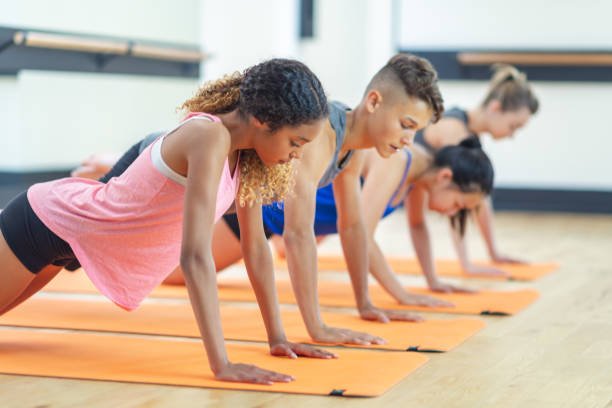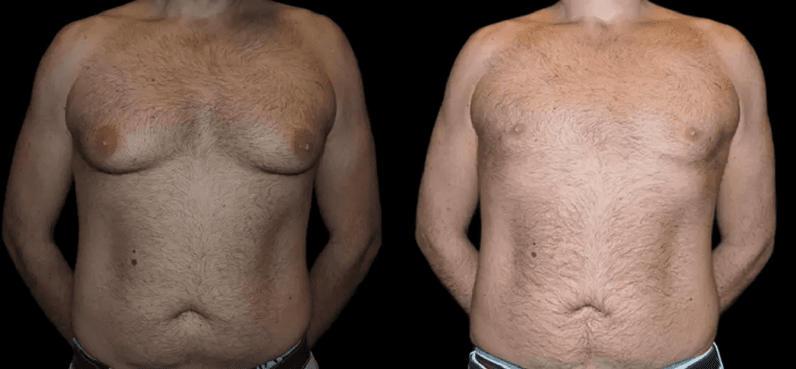In today’s fast-paced world, the importance of a balanced diet and proper nutrition cannot be overstated, especially for young athletes. Nutrition plays a pivotal role in youth fitness training, affecting everything from energy levels to recovery times. This blog, presented by PR Fitness, explores how nutrition supports youth fitness and why it is essential for optimal performance.
Understanding Youth Fitness Training
Youth fitness training encompasses a variety of physical activities designed to improve health, strength, and overall physical performance in children and adolescents. As young bodies grow and develop, proper nutrition is vital to fuel their activities and help them reach their full potential.
In youth fitness training, a well-rounded diet provides the necessary energy to participate in sports, exercise, and recreational activities. It also supports growth and development, ensuring young athletes can perform at their best while minimizing the risk of injury.
Macronutrients: The Building Blocks of Nutrition
Understanding macronutrients is essential for effective youth fitness training. These include carbohydrates, proteins, and fats, each serving a unique purpose in an athlete’s diet.
- Carbohydrates are the primary source of energy. They fuel high-intensity activities, making them crucial for young athletes who engage in sports or rigorous training. Foods rich in carbohydrates, such as whole grains, fruits, and vegetables, should form the bulk of a young athlete’s diet.
- Proteins play a critical role in growth, repair, and recovery. Young athletes need protein to build and maintain muscle mass, especially during intense training sessions. Lean meats, dairy products, legumes, and nuts are excellent sources of protein that should be incorporated into meals and snacks.
- Fats are essential for long-lasting energy and nutrient absorption. Healthy fats, found in avocados, nuts, seeds, and fish, should be included in moderation to support overall health and energy needs.
PR Fitness emphasizes the importance of understanding these macronutrients and their role in youth fitness training. A balanced intake ensures that young athletes have the energy they need while supporting their growth and recovery.
Micronutrients Matter
While macronutrients receive much attention, micronutrients, including vitamins and minerals, are equally important in youth fitness training. These nutrients support various bodily functions, including metabolism, immune health, and bone strength.
- Calcium and Vitamin D are crucial for developing strong bones, particularly during the growth spurts experienced in adolescence. Dairy products, leafy greens, and fortified foods can help meet these needs.
- Iron is essential for oxygen transport in the blood, affecting endurance and performance. Young athletes, especially females, should include iron-rich foods such as lean meats, beans, and fortified cereals.
- Vitamins such as Vitamin C and various B vitamins support energy metabolism and recovery. A diet rich in fruits and vegetables provides these vital nutrients.
PR Fitness advocates for a diet rich in a variety of foods to ensure young athletes receive all necessary vitamins and minerals, enhancing their performance in youth fitness training.
Timing Is Everything
In youth fitness training, when young athletes eat can be just as important as what they eat. Timing meals and snacks around workouts helps optimize performance and recovery.
- Pre-Workout Nutrition: Consuming a balanced meal or snack 1-2 hours before exercise provides energy and prevents fatigue. A combination of carbohydrates and a moderate amount of protein is ideal. For example, a banana with peanut butter or a yogurt parfait with granola can provide the necessary fuel.
- Post-Workout Recovery: After exercising, the body needs to replenish energy stores and repair muscles. A meal or snack rich in carbohydrates and protein consumed within 30 minutes post-workout aids recovery. Options like a protein smoothie or a turkey sandwich can be effective.
PR Fitness emphasizes the significance of proper timing in youth fitness training. When young athletes learn to fuel their bodies appropriately around workouts, they enhance their performance and recovery.
Hydration: An Often-Overlooked Component
While nutrition is critical, hydration is equally important for youth fitness training. Young athletes often underestimate the amount of water they need, leading to dehydration, which can impair performance.
- Understanding Hydration Needs: Water is essential for regulating body temperature, joint lubrication, and nutrient transport. Young athletes should drink water throughout the day and during workouts. A good rule of thumb is to consume at least half of their body weight in ounces of water daily.
- Recognizing Signs of Dehydration: Symptoms such as thirst, dry mouth, fatigue, and dark urine can indicate dehydration. Educating young athletes about these signs encourages them to prioritize hydration.
PR Fitness recommends incorporating hydration education into youth fitness training programs. Teaching young athletes the importance of staying hydrated supports their overall health and performance.
Encouraging Healthy Eating Habits
Building healthy eating habits early is essential for young athletes. Encouraging a positive relationship with food and nutrition fosters lifelong habits that benefit their overall well-being.
- Involving Kids in Meal Preparation: Engaging young athletes in meal planning and preparation helps them understand nutrition better. Involving them in choosing healthy foods and cooking can lead to more mindful eating habits.
- Making Nutrition Fun: Creating engaging and fun experiences around food can promote healthy eating. For example, organizing cooking classes or nutrition workshops within youth fitness training programs can spark interest in nutrition.
- Educating on Food Choices: Teaching young athletes how to read nutrition labels and make informed choices empowers them to take charge of their diets. Understanding the difference between whole foods and processed options can significantly impact their overall nutrition.
PR Fitness believes that fostering a healthy eating environment can significantly enhance youth fitness training outcomes, equipping young athletes with the knowledge they need for success.
The Role of Parents and Coaches
Parents and coaches play a critical role in shaping the nutrition habits of young athletes. Their influence can help establish a strong foundation for healthy eating.
- Leading by Example: Parents and coaches should model healthy eating behaviors. When young athletes see adults making nutritious choices, they are more likely to follow suit.
- Providing Support and Resources: Offering guidance and resources about nutrition can empower young athletes to make better food choices. This might include sharing healthy recipes, organizing nutrition seminars, or providing educational materials.
- Creating a Positive Environment: Encouraging a supportive atmosphere around food and fitness helps young athletes thrive. Avoiding negative comments about body image and instead focusing on performance and health promotes a more positive approach to nutrition.
PR Fitness underscores the significance of parental and coaching support in youth fitness training. A collaborative effort can lead to healthier choices and improved athletic performance.
Fueling Success through Nutrition
Nutrition plays a fundamental role in youth fitness training. By understanding the importance of macronutrients, micronutrients, meal timing, hydration, and healthy eating habits, young athletes can optimize their performance and overall health.
At PR Fitness, we believe that education is key. By fostering a supportive environment and encouraging healthy choices, we can empower the next generation of athletes to reach their full potential. As young athletes develop their skills, let’s ensure they have the nutritional foundation to succeed. By prioritizing nutrition, we set them on a path to a healthier and more active lifestyle.



